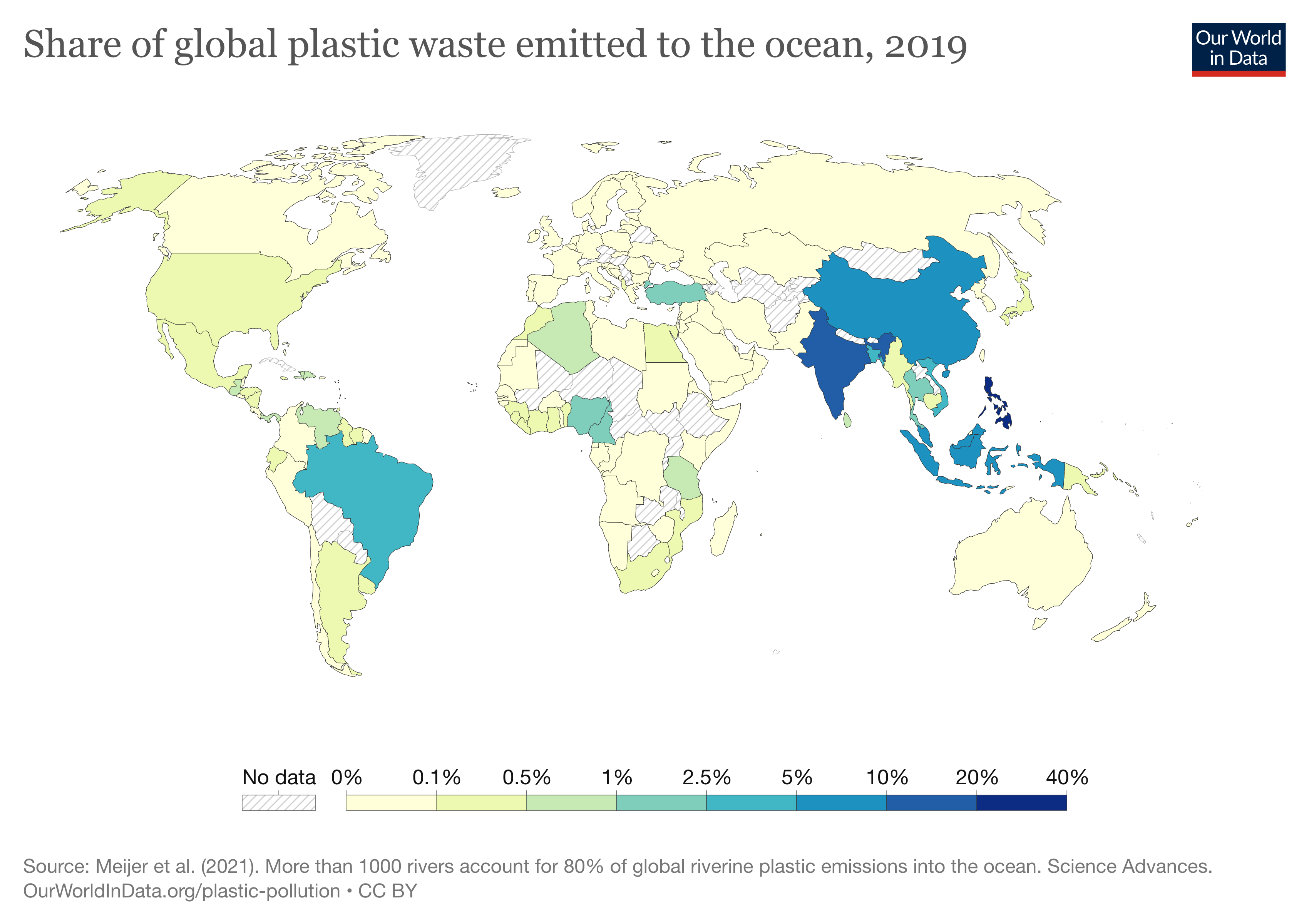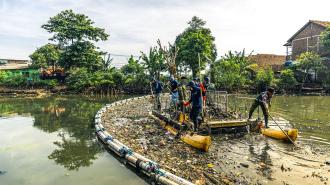It’s the kind of thing which makes you wonder why no one had thought of it sooner — hell, why you hadn’t thought of it sooner.
The vast majority of oceanic plastics come from land, delivered to the sea via rivers.
German startup Plastic Fischer’s solution to curb plastic pollution is wonderfully simple: catch it in a floating fence. Their device, called the TrashBoom, has already collected over 250 metric tons of waste in India and Indonesia since April 2021, CEO and co-founder Karsten Hirsch tells Freethink, and its design available open source for anyone to construct.

Plastic Fischer, based in Cologne, was founded in 2019 by three German students, Hirsch and his friends Georg Baunach and Moritz Schulz. The year before, they celebrated Hirsch’s graduation from law school by taking a trip to Vietnam in the winter of 2018.
It was there, in their Cà Mau hotel room overlooking the Mekong, that they could see, with stunning clarity, the sheer amount of waste borne by the waters towards the sea.
Looking for a way to remove the waste where it is concentrated, before it could disperse in the ocean, they initially developed a water wheel that would lift the refuse to shore, designboom reported. But when they field tested their design in Indonesia in June 2019, they realized that the sluggish running speed of the river during dry season meant the wheel wouldn’t work very well.
The team moved to Bandung, the capital of West Java and home to the heavily polluted Citarum River, where they teamed up with Indonesian army members tasked with cleaning the river. Seeing them out on boats gathering trash with nets, they hit on the idea of a floating fence that could be constantly deployed.
As described by Die Welt and designboom, the TrashBoom has a simple design, with a cluster of four tubes providing buoyancy for a steel mesh hanging beneath it, which collects refuse floating downstream up to 50 centimeters deep (about 1.5 feet).
Since it is only semi-submerged and rigid, wildlife can swim below it and are not likely to get tangled within it.
As for human traffic, Plastic Fischer says that on most of its current rivers, boat traffic is not an issue. But in cases where boats will need passage, enough gaps can be left in the system for navigation.
German startup Plastic Fischer’s premise for curbing plastic pollution is wonderfully simple: catch it in a floating fence.
The TrashBoom is designed to be as simply made as possible from local materials.
“We wanted to build something that would work on site,” Hirsch told German daily Die Welt. “With simple materials that are cheap and don’t have to be imported separately.”
Trash is sorted and dried by local employees, what can be recycled is recycled, and the rest burned for heat and power, Die Welt reported. In an article for the World Economic Forum, Hirsch characterized Plastic Fischer’s approach as a “3L Initiative” — local, low-tech, and low-cost.
Plastic Fischer’s floating fences projects are currently operating in India, along with the operation in Bandung and a pilot project with SOS Children’s Villages in Zimbabwe, Hirsch says.
We’d love to hear from you! If you have a comment about this article or if you have a tip for a future Freethink story, please email us at [email protected].





